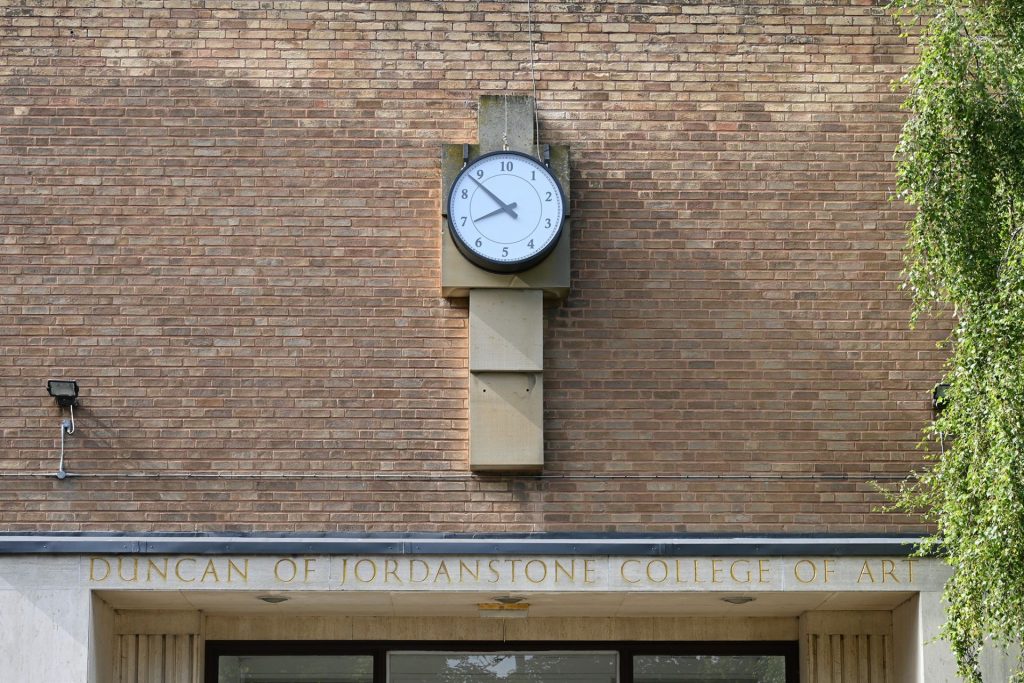The Ignorant Art School: Five Sit-ins towards Creative Emancipation

Sit-in #1: Ruth Ewan
We Could Have Been Anything That We Wanted to Be and It’s Not Too Late to Change
Sit-in Curriculum #1:
Autumn Term: 3 September – 23 October 2021 (in-person and online)
Afternoon Preview: 2 September, 3–7pmBook free tickets via Eventbrite. Exhibition and Preview.

___________________
Cooper Gallery’s major five-chapter exhibition and event project The Ignorant Art School: Five Sit-ins towards Creative Emancipation strides forward this autumn with a timely new exhibition by internationally celebrated Scottish artist Ruth Ewan.
For Sit-in #1 launched in February 2021 Ruth Ewan stated We Could Have Been Anything That We Wanted to Be and It’s Not Too Late to Change. Foregrounding the revolutionary potential of education and keeping step with the contemporary necessity for collective action, in collaboration with The Ignorant Art School, Ewan devised a two-month sequence of online gatherings which activated radical forms of collaborative learning and grassroots knowledge creation. Deploying imagination in all its rich emancipatory power and literally unsettling the time and duration of conventional learning, Sit-in Curriculum #1 traversed multiple histories, alternative social structures and popular culture to empower a lucid pedagogy grounded in communities of care and resistance unconstrained by classroom hierarchies.
Indexed by Dundee’s historical connection with the 1789 French Revolution, We Could Have Been Anything That We Wanted to Be and It’s Not Too Late to Change brings together evocative manifestations of revolutionary time with the creative energy of dissent. Featuring a decimal clock especially installed on the public façade of Cooper Gallery, a virtual and physical perpetual Republican Calendar and an immersive installation How Many Flowers Make the Spring?, Ewan’s exhibition offers us a transcendent moment resonating with dissent and solidarity.
Resetting time is an abiding and representative leitmotif of revolution and 1789 is its quintessential expression. Desiring to introduce a new ‘civil era’, the French Revolution secularised and rationalised time by abolishing the 24 hour day in favour of a decimalised 10 hour day and by renaming every month of the year to reflect not the names of Gods or Kings but nature, science and the labouring classes. Inherently political, this revolutionary reclaiming of time rings loud and clear in We Could Have Been Anything That We Wanted to Be and It’s Not Too Late to Change.
Featuring a new ambitious installation by Ewan, How Many Flowers Make the Spring?, weaves together oral histories and the personal recollections of activists involved in public moments of dissent with an indoor meadow-like landscape made of dried grasses and plants. Channelling the natural symbolism of the French Republican Calendar How Many Flowers Make the Spring? asks us to embrace liberty and freedom not as individualistic goals nor as distant utopian aims, but as collective trans-historic struggles to which we can all contribute and effect social change.
“As flowers turn toward the sun, by dint of a secret heliotropism the past strives to turn toward that sun which is rising in the sky of history.” (Walter Benjamin, Theses on the Philosophy of History IV, 1940)

___________________
Artist Biography